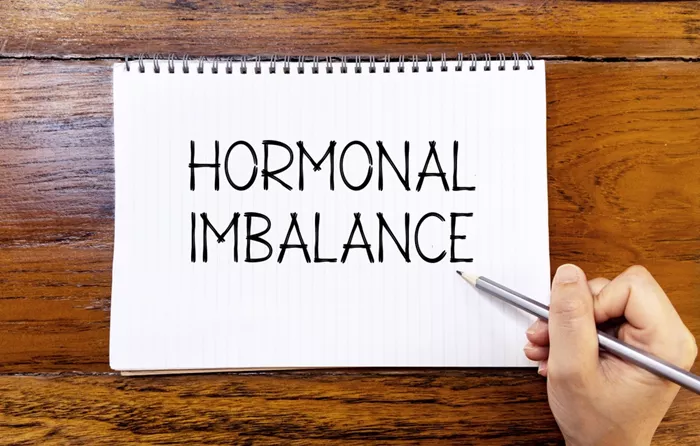Hormonal imbalance is a common issue many women face at different stages of life. It can cause symptoms like mood swings, fatigue, irregular periods, hot flashes, and sleep problems. Hormones are chemical messengers that regulate many body functions, including reproduction, metabolism, and mood. When these hormones are out of balance, it affects your overall health and well-being. Fortunately, certain vitamins and supplements can help restore hormonal balance naturally. This article explores the 7 best vitamins for women to support hormone health, explaining how they work and why they are important.
Understanding Hormonal Imbalance in Women
Hormonal imbalance often happens during key life phases such as puberty, pregnancy, postpartum, perimenopause, and menopause. It can also be caused by conditions like polycystic ovary syndrome (PCOS), thyroid problems, or chronic stress. Factors like poor diet, lack of sleep, exposure to toxins, and high stress levels can worsen hormone imbalances. Vitamins and minerals are essential for the glands that produce hormones, helping them function properly. For example, the thyroid gland needs iodine and selenium to make thyroid hormones, while the adrenal glands rely on magnesium and B vitamins to manage stress hormones.
Taking the right vitamins can support hormone production, improve mood, reduce symptoms, and promote overall health. Below are the 7 best vitamins recommended for women dealing with hormonal imbalance.
1. Vitamin D
Vitamin D plays a crucial role in regulating estrogen and progesterone, two key female hormones. Low vitamin D levels are linked to mood swings, depression, and menopausal symptoms like hot flashes. Since most vitamin D comes from sunlight, many women are deficient, especially in winter. Supplementing with vitamin D can help balance hormones, support bone health, and improve mood. A daily dose of around 1000 IU is often recommended, but it’s best to check your levels with a doctor before starting supplements.
2. Magnesium
Magnesium is vital for hormone production and helps calm the nervous system by reducing cortisol, the stress hormone. Many women don’t get enough magnesium due to factors like coffee, sugar, stress, and poor sleep. Supplementing magnesium supports the production of estrogen, progesterone, and testosterone. It also improves sleep quality and reduces anxiety and PMS symptoms. Magnesium is found in foods like nuts, leafy greens, and whole grains, but a supplement can ensure you get enough.
3. B Vitamins
B vitamins, especially B6, B12, and B3, are important for hormone balance. Vitamin B6 helps regulate estrogen and progesterone and can ease PMS symptoms like mood swings and irritability. Vitamin B12 supports liver function, which breaks down excess hormones, preventing buildup that can cause inflammation and fatigue. Vitamin B3 aids hormone production and liver detoxification. Since B vitamins support energy and stress management, they are essential for women with hormonal fluctuations.
4. Zinc
Zinc supports the production of many hormones, including thyroid and sex hormones. It also helps regulate the menstrual cycle and supports immune function. Zinc deficiency can lead to hormonal imbalances, affecting fertility and skin health. Foods rich in zinc include meat, shellfish, seeds, and nuts. Supplements can help if dietary intake is low.
5. Iodine
Iodine is critical for thyroid hormone production. The thyroid controls metabolism and influences estrogen and progesterone levels. Without enough iodine, thyroid function slows, leading to symptoms like fatigue, weight gain, and mood changes. Iodine is found in seaweed, dairy, and iodized salt. Supplementing iodine can support thyroid health and hormonal balance, especially in women with hypothyroidism.
6. Ashwagandha
Ashwagandha is an adaptogenic herb that helps regulate cortisol levels and reduce stress. High cortisol can disrupt other hormones, causing symptoms like anxiety, weight gain, and irregular periods. Ashwagandha supports adrenal health, improves sleep, and eases menopausal symptoms such as hot flashes and vaginal dryness. It is available in capsule form and is often used alongside vitamins for hormone support.
7. Probiotics
Gut health is closely linked to hormone balance. Probiotics help maintain healthy gut bacteria, which influence estrogen metabolism and immune function. Women with hormonal imbalances often have less healthy gut flora. Taking a probiotic supplement or eating probiotic-rich foods like yogurt, kefir, and kimchi can improve digestion, reduce inflammation, and support hormone regulation.
Balancing hormones naturally with vitamins and supplements can improve many symptoms and enhance quality of life. Along with a healthy diet, regular exercise, and stress management, these vitamins provide essential support for your endocrine system. Always consult a healthcare provider before starting new supplements to ensure they are appropriate for your individual needs.
Conclusion
Hormonal imbalance can disrupt daily life, but with the right vitamins and care, women can restore balance and feel their best. These seven vitamins-Vitamin D, Magnesium, B Vitamins, Zinc, Iodine, Ashwagandha, and Probiotics-offer natural, effective support for hormone health. Incorporate them thoughtfully into your routine and enjoy improved mood, energy, and well-being.
FAQs About Vitamins for Hormonal Imbalance
1. Can vitamins alone fix hormonal imbalance?
Vitamins help support hormone production and balance but work best combined with lifestyle changes like a balanced diet, exercise, and stress reduction.
2. How long does it take for vitamins to balance hormones?
It varies by individual and severity of imbalance but usually takes several weeks to months to notice improvements.
3. Are there risks to taking hormone-balancing vitamins?
Most vitamins are safe at recommended doses, but excessive intake can cause side effects. Always follow dosage instructions and consult a doctor.
4. Can I get these vitamins from food instead of supplements?
Yes, a varied diet rich in fruits, vegetables, nuts, seeds, fish, and dairy can provide many vitamins, but supplements help fill gaps.
5. Should I get my hormone levels tested before taking supplements?
Testing can help identify specific deficiencies and guide personalized supplementation for better results.
Related topics:
- The 8 Best Vitamins For Hormonal Imbalance
- 5 Effective Non Hormonal Treatment For Vaginal Dryness
- Managing Hot Flashes: Hormonal and Non-Hormonal Options


